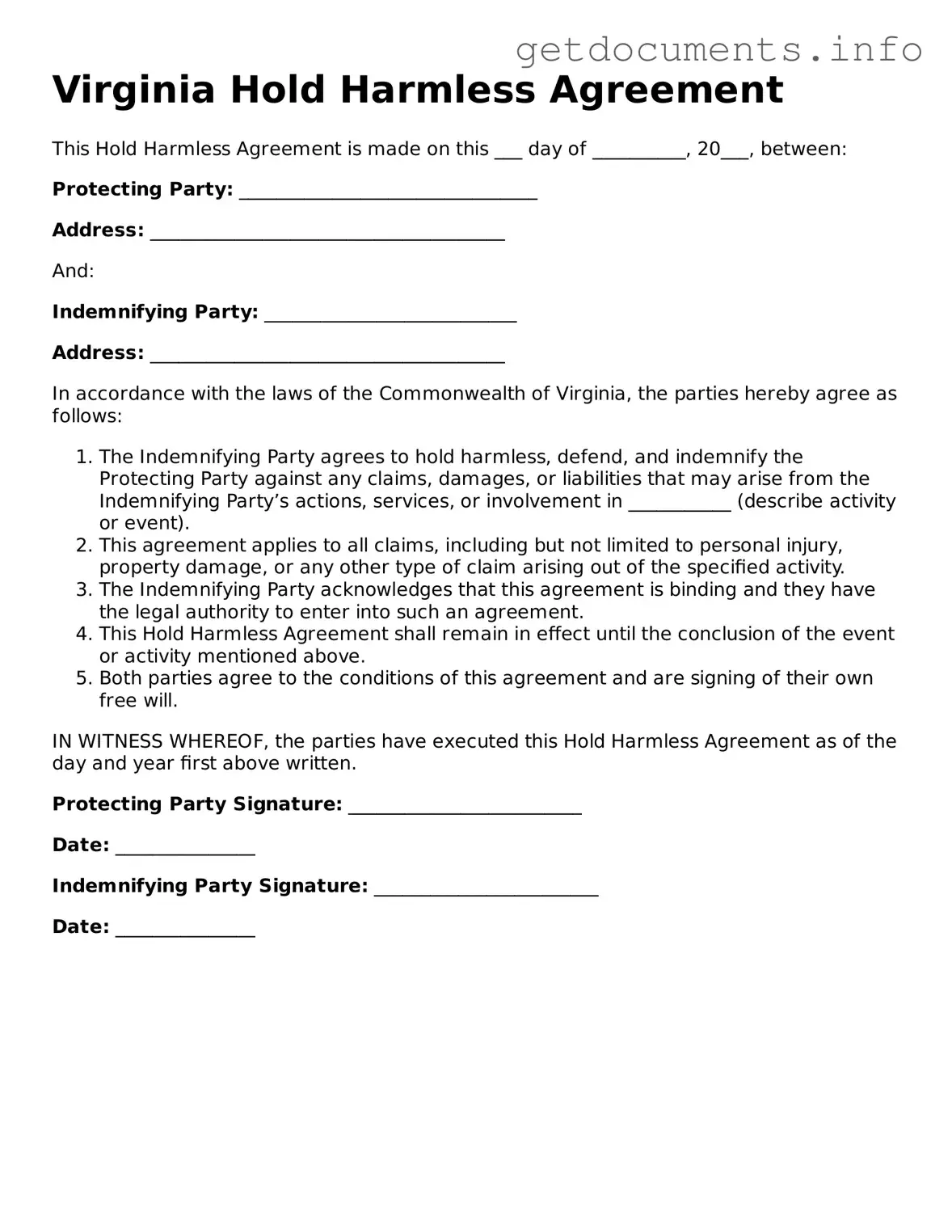Free Hold Harmless Agreement Template for Virginia
A Virginia Hold Harmless Agreement form is a legal document designed to protect one party from liability for any injuries or damages that may occur during a specific activity or event. This agreement ensures that individuals or organizations can engage in activities without the fear of being held responsible for unforeseen incidents. To safeguard your interests, consider filling out the form by clicking the button below.
Access Hold Harmless Agreement Editor

Free Hold Harmless Agreement Template for Virginia
Access Hold Harmless Agreement Editor
Got places to be? Complete the form fast
Fill out Hold Harmless Agreement online and avoid printing or scanning.
Access Hold Harmless Agreement Editor
or
⇩ PDF File
